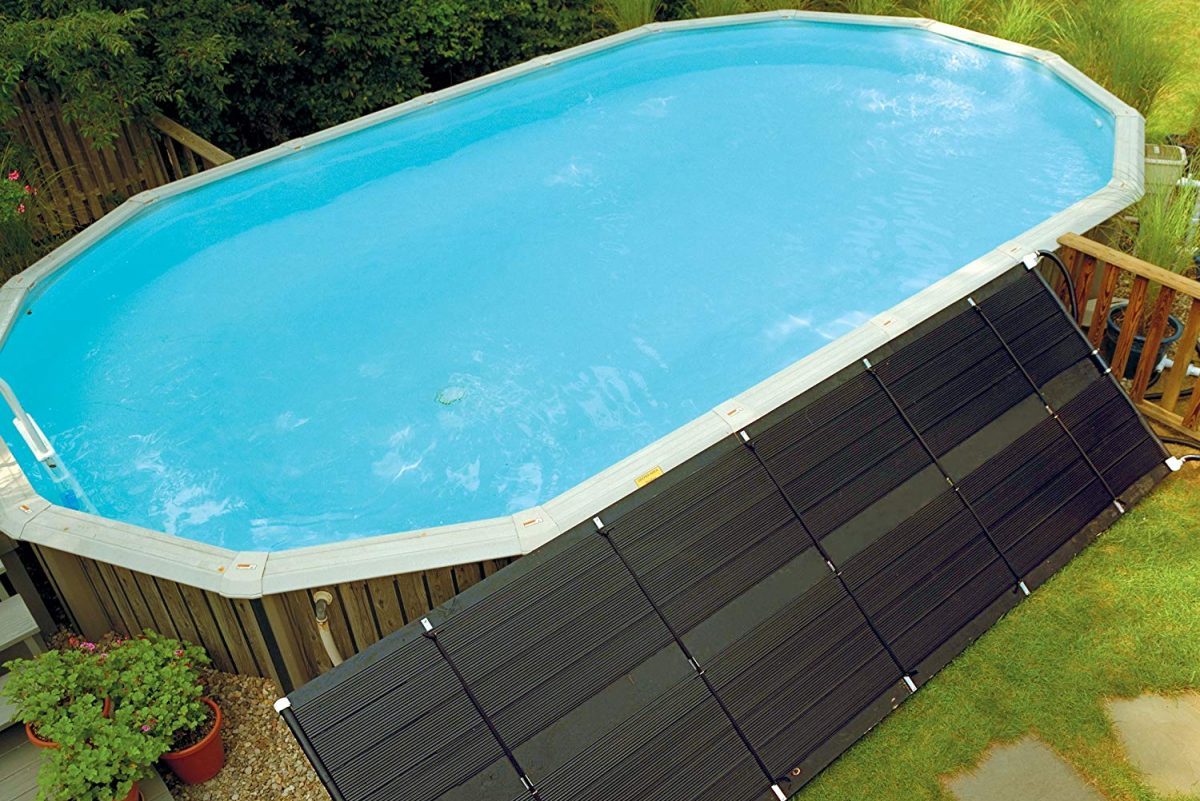Heating pool water can be a major energy consumer, even in residential homes. Water heating encompasses 25% of energy usage in houses. Thus, finding an ideal renewable and highly efficient heating system for your pool is essential. This topic often boils down to two options: whether to install heat pumps or solar panels.
Both serve a similar purpose— and that is to heat the water in your pool merely. Both of them also produce heat by converting energy from a renewable source. The main difference is how these two devices heat water and what “renewable source” they’re extracting heat from.
The Main Difference Between Solar Thermal and Heat Pumps
Solar heating systems actually extract heat directly from the sun. On the other hand, heat pumps extract heat from the ground or air. The heat these devices have gotten from their designated renewable sources will then be utilized for domestic water and central heating.
The Difference in Water Heating Methods
Solar Thermal
A pool heated by a solar heating system is simpler when it comes to how it is operated. Water is pumped from a swimming pool or spa through a multi-tube solar collector. This solar collector is mounted on a house’s roof and then connected to a spa or pool. When the water enters a solar collector, the heat of the sun warms it up.
Solar Thermal or Solar Heating Benefits:
- There are zero running cost
- Maintenance is deficient
- It helps in taking some strain off the boiler
Heat Pump
Heat pumps, just like solar thermal, are energy-efficient and environmentally friendly. This technology utilizes free heat from the ground or air to warm your swimming pool. The best thing about this device is it is more affordable compared to other heating devices and methods.
Heat pumps employ basic refrigeration cycle type, a similar method used by air conditioning units and refrigerators— but in another direction. This device releases heat into its conditioned area instead of its surrounding environment. With this cycle, a heat pump only draws heat from the atmosphere’s air.
Heat Pump Benefits (Sourced From the Ground)
- The underground temperature remains at a constant temperature throughout the year (ten degrees Celsius to fifteen degrees Celsius)
- Maintenance is deficient
Heat Pump Benefits (Sourced From the Air)
- It can perform very efficiently (up to three hundred to four hundred percent)
- Air-to-air heating pumps provide cool temperatures during the warmer season
- Maintenance is deficient
- It can continue to generate heat even in low temperatures (negative twenty degrees Celsius to negative twenty-five degrees Celsius)
Solar Thermal and Heat Pumps Costs
Compared to other conventional oil and gas boilers, these renewable heating methods (solar and heat pumps) are more expensive, especially ground-sourced heat pumps.
Solar thermal cost: £3,000 to £7,000
Ground-sourced heat pump cost: £8,000 to£12,000
Air-sourced heat pump cost: £4,000 to £11,000
Final Thoughts
The popularity of renewable heating methods increases as residential owners are becoming more and more practical and conscious of the environment. Both renewable systems are priced higher than conventional heaters; however, the real deal lies in the best among the two.
Given that both systems are environmental-friendly, highly efficient, have low maintenance, and great investments, solar heating systems are easier to install than heat pumps. Nevertheless, to know which systems suit your home the most, it is best to seek experienced installers.
